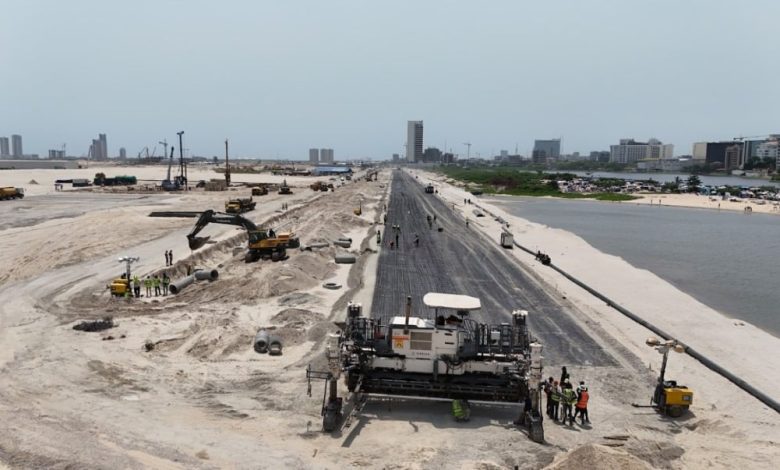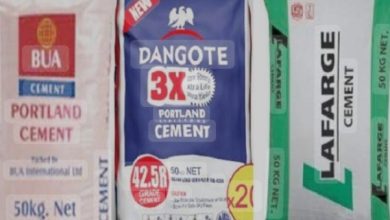$747 M Syndicated Loan Landed for Lagos–Calabar Coastal Highway Project

Nigeria has obtained a syndicated loan of $747 million to construct the Lagos-Calabar coastal highway’s first phase, section 1.
Mohammed Manga, director of communication and public relations at the ministry of finance, said in a statement on Wednesday that the funding covers the 47.47-kilometer distance between Victoria Island and Lagos’ Eleko Village.
As the first syndicated road infrastructure loan of its magnitude in Nigeria, Manga said the funding is a clear indication of international investors’ faith in the nation’s infrastructure pipeline and reform trajectory.
He noted that in addition to other regional and foreign lenders, Deutsche Bank was the syndicate’s global coordinator, first mandated lead arranger, and bookrunner.
The director further stated that some insurance coverage for commercial and political risk was offered by the Islamic Corporation for the Insurance of Investment and Export Credit (ICIEC).
“The syndicate has the backing of international commercial banks, export credit agencies, and development finance institutions, particularly First Abu Dhabi Bank, which is also serving as an agent for all facilities and an intercreditor agent, whose participation highlights its robust and expanding support for Nigeria,” he stated.
Other lenders were the ECOWAS Bank for Investment and Development (EBID), the African Export-Import Bank, the Abu Dhabi Exports Office (ADEX), Nexent Bank N.V. (formerly Credit Europe Bank N.V.), and Zenith Bank (via its offices in the UK, Paris, and Nigeria).
An EPC+F (Engineering, Procurement, Construction + Financing) contract was given to Hitech Construction Company, one of Nigeria’s top infrastructure companies, for the project.
According to Manga, the structure seeks to establish a strategic alliance between the public and private sectors, efficiently coordinating financial solutions with technical implementation.
The statement claims that it can expedite project completion while maximizing private sector participation in the nation’s key infrastructure.
Read Also: 2015 Victory Was Earned, No One Made Buhari President — Boss Mustapha
According to him, more than 70% of phase 1 section 1 of the highway’s construction is already finished.
With its Continuously Reinforced Concrete Pavement (CRCP) construction, the highway demonstrates a dedication to long-term efficiency and robustness. According to the statement, it is designed to last at least 50 years with no upkeep and provides exceptional durability and affordability.
According to the highest international standards, the project’s design and execution have been influenced by thorough technical, legal, environmental, and social assessments.
In addition to improving regional integration and tourism, the Lagos-Calabar Coastal Highway will also lower transportation costs and generate employment as a crucial commercial and logistics corridor. To secure the project’s operational and financial viability, a tolling plan is presently being finalized.
In order to maintain long-term viability, these measures will support a framework that is self-sustaining and supported by concessions. The financing for the next stages is already being arranged, and both domestic and foreign investors are quite interested.
“Bold macroeconomic reforms and a dedication to delivering bankable, transformative projects are the driving forces behind the historic transaction, which reflects the renewed engagement of international financial institutions with Nigeria,” Manga added.
The maturity of the Nigerian market is indicated by “transcription signals to investors.”
The transaction, according to Wale Edun, minister of finance and coordinating minister of the economy, shows that Nigeria’s macroeconomic reforms have been successful and that foreign investment has returned to assist its growth.
The transaction is an example of the government’s strategy in action, he said, adding that the government is committed to financing infrastructure through sustainable, transparent, and revolutionary means.
Edun stated that the closure of this market-defining financing was another indication of the President’s determination to hasten the private sector’s involvement in infrastructure construction and finance.
It puts the nation in a position to complete the shift to using public-private partnerships for the planning, building, funding, and administration of vital public infrastructure.
“It communicates to investors and private sector players the level of maturity and sophistication of the Nigerian market as well as the government’s dedication to upholding the integrity of contracts and creative financing methods for vital national infrastructure that will support inclusive and long-term growth.”
According to Works Minister David Umahi, the deal is a sign of support for Nigeria’s economic restructuring program.
According to him, “this financing sets a strong precedent for future public-private infrastructure partnerships, and the Lagos-Calabar Highway is a strategic national asset.”
Managing director Dany Abboud of Hitech Construction Company Limited said he was proud to have completed the coastal highway project.
With more than 70% of Phase 1 Section 1 finished, Abboud stated, “we are demonstrating that Nigerian engineering, supported by organized international finance, can meet global standards.”
“CRCP technology offers unparalleled cost-effectiveness and durability.”
The ICIEC’s CEO, Khalid Khalafalla, also spoke and said the organization is proud to have worked with the Nigerian government and other financiers to complete the Lagos–Calabar coastal highway program.
“We are unlocking critical infrastructure that will reduce traffic, promote regional trade, and propel inclusive economic growth through ICIEC’s sovereign risk coverage solution,” he stated.
According to Khalafalla, the initiative will highlight ICIEC’s strong commitment to sustainable development, enhanced regional connection, and shared prosperity throughout West African regions by creating jobs, boosting local skills, and assisting small and medium-sized businesses.





